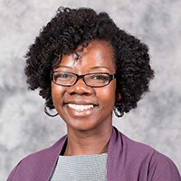Collaborative Research: Broadening Participation Research Center for Research on Identity and Motivation of African American Students in STEM
Dr. Rashunda Stitt Richardson funded by the National Science Foundation
The Historically Black Colleges and Universities Undergraduate Program (HBCU-UP) has identified research in broadening participation in STEM as one of its priorities and is committed to funding innovative models and research to enhance the understanding of the barriers that hinder and factors that enhance our ability to broaden participation in STEM. The project presented by Howard University, Winston-Salem State University, Coppin State University, and Morehouse College has been designed to initiate the implementation of essential research that will set the foundation for the development of the theoretical models that pertain to the research on identity and motivation of African American students in science, technology, engineering and mathematics fields. The project consists of the requisite research, education, knowledge transfer and outreach components. It is uniquely poised to transform current psychology theories on STEM learning while engaging participants from a minimum of 30 HBCUs, thereby giving voice to the diverse contexts that may enhance our understanding of STEM learning and STEM pedagogy. BPRC: Center for the Development of Identity and Motivation of African American Students in STEM are as follows: (1) to develop, implement, and evaluate a partner operational plan that informs the development of a larger scale BPRC; (2) to expand and sustain the research capacity at four institutions (Howard University, Winston-Salem State University, and Morehouse College, Coppin State University) to conduct mixed methods psychology broadening participation research on HBCU undergraduate STEM education; (3) to partner with existing HBCU research labs and the University of Michigan National Center for Institutional Diversity to develop a robust strategy to transfer knowledge about identity-based motivation of African American students in STEM through multimedia and varied forms of dissemination and outreach; and (4) to develop a mixed methods psychology broadening participation research training curriculum to produce the next generation of scholars in the psychological science of broadening participation.


